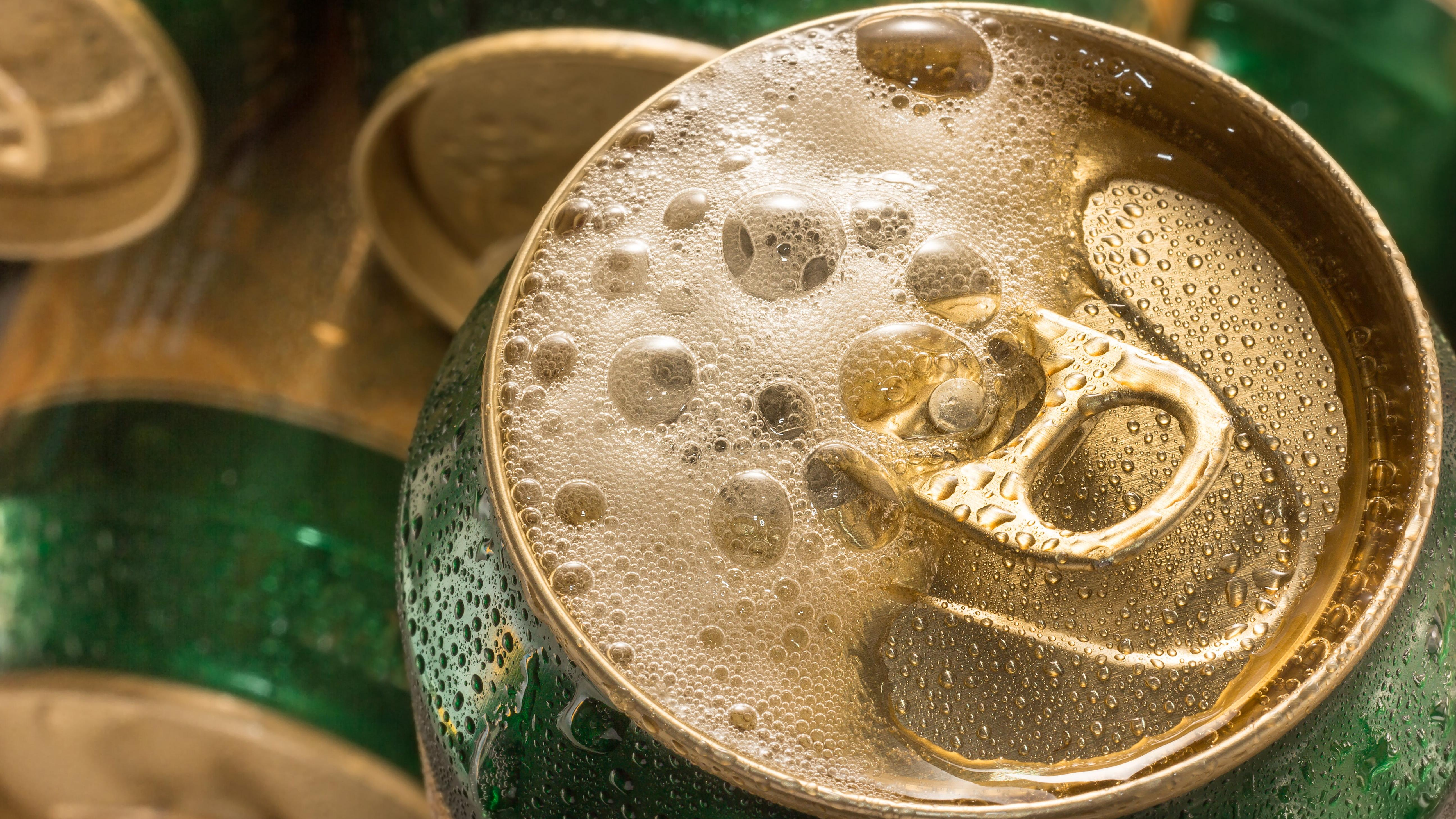Beer Is Becoming An Increasingly Precious Resource
Breweries are battling a CO2 shortage and mounting production costs.
If you're noticing less of your favorite brews on store shelves or a price increase on your go-to six-pack, the ongoing carbon dioxide shortage may be to blame. The supply first took a hit in 2020 when demand for gasoline was low; CO2 is the byproduct of ethanol, and when people were staying at home instead of filling up their tanks and hitting the road, less ethanol (and by extension, less CO2) was produced. Now, in 2022, a combination of increased gas prices, increased seasonal demand, and contamination to a key supplier are all making CO2 more expensive and harder to come by, The Washington Post reports. It's a situation that's causing brewers to get creative with how they keep the beer flowing.
How the carbon dioxide shortage is affecting breweries
Just a little beer science, for background: Carbon dioxide is not only an ingredient added to the finished beer before packaging to make it bubbly, but as an inert gas it's also used to purge tanks and containers of oxygen to keep packaged beer fresh. Carbon dioxide is also a byproduct of fermentation, so it is a naturally occurring gas in the brewing process. Essentially, without carbon dioxide, there is no beer.
With a shortage in CO2 comes a lot of unpredictability, and that's leaving brewers vulnerable. CO2 prices are higher than ever and could fluctuate at any moment, and relationships between breweries and suppliers are unreliable.
Brewers Association CEO Bob Pease told The Washington Post that there have been instances of breweries ordering 100 pounds of CO2 and the supplier calling to say only 40 pounds are available. Dave Bleitner, co-founder of Chicago-based Off Color Brewing, tells The Takeout that the supplier he's been working with for nine years was recently sold to another company—and dealing with a new supplier relationship is an added risk during a time of uneven supply.
But breweries refuse to stop brewing, and they're coming up with creative solutions to not only get through this current shortage, but shift the beer industry's reliance on CO2 altogether.
How breweries are battling the CO2 shortage
It's almost as if the team at Off Color has been spending their entire professional lives preparing for this moment—the brewery has long been taking steps to improve its carbon dioxide efficiency, first by relying more heavily on nitrogen.
"Fortunately, nitrogen can be used as an inert purge gas, and it makes 78% of our air," Bleitner says. "In March 2017, we commissioned a South-Tek Systems nitrogen generator that strips oxygen out of compressed air and stores it for use as an inert gas. The 99.99% pure nitrogen is then used in our cellar operations to purge vessels of oxygen as well as applications that require pressure, such as moving beer from one tank to another."
As for the CO2 that gets produced during fermentation, there are ways to repurpose that back into the brewing process as well.
"Macro breweries are able to recover this CO2 and use it in processing; however, these plants cost hundreds of bajillions or something like that," Bleitner says. "But somewhat recently, technology has come along to allow smaller breweries to recover and reuse CO2 as a byproduct of fermentation. We commissioned an Earthly Labs CiCi CO2 recovery system in 2022. This system takes the CO2 produced from fermentation, [then] compresses, purifies, and liquifies the gas."
The newfound ability to do what macro breweries have been doing for a long time has been making a difference. "While we haven't gotten the system efficient enough that we are independent of CO2 from outside sources, I believe we will be close by the end of the year," said Bleitner.
Some other breweries, meanwhile, are staying afloat by relying on collaborations with other companies and production facilities to keep beer on the shelves. Former Takeout managing editor Kate Bernot reported in Good Beer Hunting that Massachusetts-based Night Shift Brewing, unable to source enough CO2 to produce its beers, is outsourcing production through a contract brewing agreement with nearby Jack's Abby and Isle Brewers Guild. This could potentially lead to an alternating proprietorship in the space, a model where two companies can use the same physical space for brewing. This sort of arrangement may become more common as smaller breweries work to recover from not only the CO2 shortage but other high-cost challenges the pandemic has thrown their way.
Breweries are still facing other challenges, too
"Other than the current CO2 shortage, aluminum cans have been the bottleneck as we come out of the pandemic-driven shutdowns," Bleitner says. "It started as availability, but now pricing is the challenge. We are paying 40% more for our cans than we were in 2019. This additional cost is especially painful because packaging is our number-one cost of goods sold."
Bleitner says Off Color four-packs are now a dollar more on the shelves, but the brewery is still absorbing some of the costs to make sure customers aren't hit too hard with rising prices. Price hikes on a dwindling beer supply are the convergence of many factors: the rising cost of production, rising cost of delivery, and even higher electricity bills to keep facilities at the right temperature during nationwide heat waves.
If you're worried about your favorite breweries as these issues persist, the best thing you can do is just keep drinking their beers.
"The best way for our fans to help is to just keep buying our beer and visiting our taproom," Bleitner says. "Their support so far has really carried us through all the challenges we have faced in the last three years."
